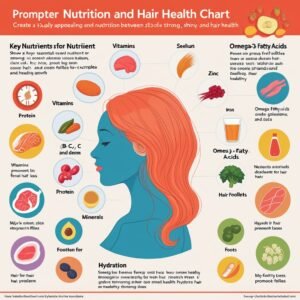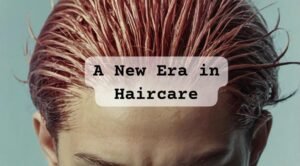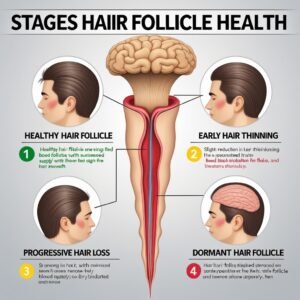Combatting thinning hair can be a multi-faceted approach, depending on the underlying cause. Here are some strategies to help with thinning hair:

1. Maintain a Healthy Diet:
Ensure you’re getting plenty of vitamins and minerals essential for hair health, such as biotin, vitamin D, iron, zinc, and omega-3 fatty acids. Include protein-rich foods (e.g., eggs, nuts, fish, and legumes) to support hair growth.
2. Topical Treatments:
Minoxidil (Rogaine): An over-the-counter topical treatment that can help stimulate hair growth for both men and women.
Caffeine-based shampoos: Some studies suggest that caffeine can stimulate hair follicles and promote hair growth.
3. Prescription Treatments:
Finasteride (Propecia): For men, this prescription medication can help slow down hair loss by blocking the hormone DHT, which causes hair follicles to shrink.
Spironolactone: This is used primarily for women with thinning hair due to hormonal imbalances.
4. Hair Growth Supplements:
Supplements containing biotin, collagen, or other hair-boosting ingredients may help strengthen hair, although results can vary.
5. Gentle Hair Care:
Avoid harsh treatments (like bleaching, excessive heat styling, or tight hairstyles) that can damage hair.
Use a mild shampoo and conditioner, and try not to wash your hair too frequently to avoid stripping natural oils.
Avoid excessive brushing or combing, which can cause breakage.
6. Scalp Massage:
Regularly massaging your scalp may improve blood circulation to the hair follicles, potentially stimulating hair growth.
7. Stress Management:
Managing stress through relaxation techniques, exercise, or mindfulness practices may help prevent further hair loss because stress can cause hair loss. 8. Hair Restoration Procedures:
8.Hair Transplant Surgery:
In cases of advanced hair thinning or balding, hair transplant surgeries (like follicular unit extraction or follicular unit transplantation) can be a more permanent solution.
Platelet-Rich Plasma (PRP) Therapy: This involves injecting your own platelets into the scalp to stimulate hair follicles.
9. Speak with a dermatologist:
If you’re unsure about the cause of your hair thinning (whether it’s genetic, hormonal, or related to other conditions), consulting a dermatologist or a trichologist can help you identify the best treatment for your specific situation.
10. Avoid Smoking and Limit Alcohol Consumption:
Smoking and excessive alcohol consumption can negatively affect hair growth. Reducing or eliminating these habits may support healthier hair.
If you notice significant hair thinning, it’s always a good idea to consult with a healthcare provider to rule out underlying conditions, such as thyroid issues, iron deficiency, or hormonal imbalances.





